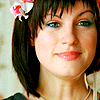Welcome to another weekly post in the How I Write series. This series of posts is the brainchild of Ansha Kotyk, who--along with the other participants, including Yours Truly--haunts the forums (registration required) of the Romance Divas website. You can go
here to find a list of all the participants with links to their individual blog posts. We'll each be posting on the same topic each Wednesday for the next two or three months--longer, if it goes well and we're having fun with it.
This week's topic is Recommendations--Readings or Classes I've Taken.
Years (and years...yikes!) ago, I was a member of a critique group. Soley by good luck, I fell into a group with published writers involved in it. Mary Rosenblum (who writes SF and mysteries) was one. Mike Moscoe (or Mike Shepherd) was another member, though he was still a wannabe when I joined the group, but he sold his first novel not long after I joined the group. I wrote and got critiques and learned how to listen quietly while my darlings were put through a blender in front of me. I even sent a few stories out, but I didn't either write or submit consistently, and soon fell back into my old ways. That group eventually dissolved, as groups tend to do.
I continued to write fanfic, and some original fic, and participate in online games (that were really more like collaborative writing projects). I attended the local SF convention every year, attended all the panels aimed at writers and wannabes, and every year I got fired up to want to write again...and then after the con the desire would fade away and I'd go back to my old habits.
Two of the writers who sometimes presented panels were
Kristine Katherine Rusch and
Dean Wesley Smith. Separately and together, they've been editors and publishers, and they've both published scores of novels and short stories. They both have websites and blogs, and it was they who introduced me to Heinlein's Rules For Writers and who taught me to run the numbers. I would strongly recommend that you check out both blogs.
Dean is currently doing a multi-part series on his blog called
Killing The Sacred Cows of Publishing, about the many and destructive myths around writing fiction for a living. Kris is writing
The Freelancer's Guide on her blog, about the ins and outs of working as a freelancer--of any kind, not just writing. They both have extensive experience and know whereof they speak, so it's good advice--and it's free. They're both also posting frequently about how the advent of electronic publishing is changing and will change the world of publishing. Short answer:
nobody knows yet, but you need to pay attention to this stuff because nobody will care more about your career than you will. (P.S. the comments to their blogs are often as useful as the blog posts themselves, as other professional writers chime in with their experiences, opinions, and beliefs.)
Kris and Dean also do workshops for writers in Lincoln City, Oregon. I attended one last September which helped spur me to buckle down and
work at writing instead of playing around at it. That's why I now, around a year later, have seven erotic romance shorts published and two novels circulating. Their workshops are well worth the cost.
In a less interactive vein, I also recommend a number of books that I've found helpful over the years:
Orson Scott Card's
Character and Viewpoint (Writers Digest Books) - An in-depth look at how to construct and animate convincing characters, and--my personal favorite part--an analysis of the differences between first, second, third and omniscient points of view, pointing out the benefits and drawbacks of each.
Jack Bickham's
Scene and Structure (Writers Digest Books) - I've never read a book that gave me a clearer understanding of the structure of scenes, from the smallest to the grandest levels. It all boils down to cause and effect, stimulus and response. Bickham goes into great detail about the many ways you can screw this up, and how to do it right.
Dwight V. Swain's
Techniques of the $elling Writer (University of Oklahoma Press) - This is an older book, but well worth reading. It covers some of the same ground as the previous book (and did it first, really, but it wasn't the first one I read), and is another excellent manual on how to create dramatic tension scene by scene.
Robert McKee's
Story (Harper Collins) - Subtitled "Substance, Structure, Style, and The Principles of Screenwriting", it's obviously a book about writing movie screenplays rather than novels. Nonetheless, it is full of excellent advice on how to pare a story down to the essentials and find the "skeleton" of your story, or (going in the other direction) start with bare bones and work your way up to a fully-fleshed dramatic story.
I recommend all of these books, and I welcome comments suggesting others you think I might profit from reading!

You're reminding me of a couple of books that I need to add to my collection. Story and Selling Writer. Both are so highly recommended I feel like I"m missing out. :) Practical advice like running the numbers is something I can wrap my head around... and I think I need more exposure to it. I'll def be checking the blogs you mentioned, thanks!
ReplyDelete